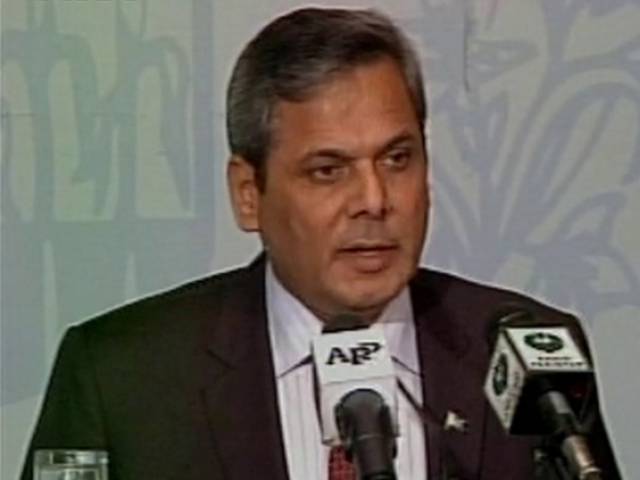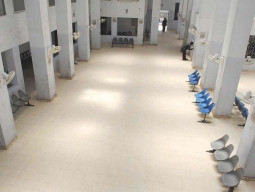
The extraordinary conference, on devising ways to end the conflict in the war-torn country, is a follow-up to earlier meetings hosted by Russia on Afghanistan.
The previous sitting was attended by Pakistan and China while India and Iran were also invited to attend the second round of talks on the situation in Afghanistan.
Kabul, Taliban likely to restart peace talks
The next meeting is being attended by host Russia, Pakistan, China, Iran, India and several Central Asian states. The United States turned down the invitation, saying it was not consulted in advance about the upcoming conference.
Speaking at a weekly news briefing here, spokesperson of the Foreign Office Nafees Zakria said that Pakistan would attend the Moscow meeting, but the country’s participation level would be decided later.
Zakria said he was not in a position to say whether or not Taliban representatives would attend the meeting.
“However, Pakistan firmly believes in an Afghan-led peace and reconciliation process, aimed at bringing all warring factions, including the Taliban, to the negotiating table,” he said.
On the objective of the flurry of meetings, he said Pakistan had constructively participated in these meetings for lasting peace and stability in Afghanistan.
“We hope the deliberations in this meeting would be focused on this objective,” the spokesperson maintained.
Zakria declined to comment on media reports suggesting that Pakistan hosted a seven-member Afghan Taliban delegation for bringing insurgents back to the negotiating table.
AP news agency claimed that the seven-member Taliban team stayed in Pakistan for a week and met officials to discuss peace efforts.
Afghan Taliban consider options on resuming talks
Taliban representatives, according to the news agency, insisted that talks mainly focused on the release of prisoners being held in Pakistan.
Russia and China in recent months have been spearheading efforts to revive the peace talks between the Taliban and Kabul. Their efforts, however, are being seen with suspicion in the west, especially in the United States.
Afghanistan is also wary of the Russian and Chinese initiative that is apparently in tune with Pakistan’s policy seeking all inclusive dialogue with the Taliban.
Russia and China are increasingly concerned that volatile security situation in Afghanistan would allow ISIS to gain foothold in Afghanistan.
Recently, US Secretary of State Rex Tillerson also said that ISIS was recruiting people from Pakistan, Afghanistan, and Iraq.
When asked to comment on the Secretary of State’s assessment, the spokesperson insisted that there was no ISIS presence in Pakistan.
“Mr Tillerson (had) expressed his concern about … ISIS efforts to recruit people from different countries. The recruitment could be done from any country from amongst the vulnerable people. On our part, we are determined to thwart any such attempt by any terrorist organisation,” Zakria said.
On the decision to reopen the Pakistan-Afghanistan border, the spokesperson said the decision was taken as a goodwill gesture but expressed the hope that Afghanistan would take action against ‘safe havens.’
He said the meeting in London also focused on the need for an institutional mechanism for counter-terrorism cooperation, to which Afghan side was agreeable.
“We hope that the two countries will work through the agreed mechanism for … preventing cross-border terrorism and enhancing bilateral interaction in different areas.”


1725612926-0/Tribune-Pic-(8)1725612926-0-165x106.webp)














COMMENTS
Comments are moderated and generally will be posted if they are on-topic and not abusive.
For more information, please see our Comments FAQ